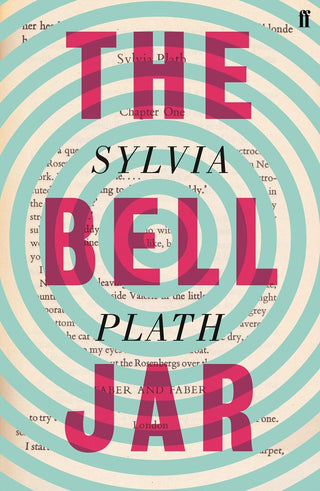"The Bell Jar" by Sylvia Plath is a seminal work of literature that offers profound insights into the human condition, particularly regarding mental illness and depression. Here's why it's worth reading and how it can resonate with individuals struggling with depression:
1. **Authenticity of Experience**: Sylvia Plath drew heavily from her own struggles with depression and mental illness, infusing the novel with a raw, unfiltered portrayal of what it's like to experience the depths of despair. Readers dealing with similar issues often find solace in knowing that they're not alone in their experiences.
2. **Articulation of Emotions**: Plath's prose is evocative and powerful, effectively capturing the complexities of depression in vivid detail. Through her protagonist Esther Greenwood, readers can empathize with the tumultuous emotions, the sense of isolation, and the internal struggles that accompany mental illness.
3. **Validation of Feelings**: For many individuals battling depression, there's often a sense of invalidation or misunderstanding from others who may not comprehend the severity of their condition. "The Bell Jar" provides a voice for these feelings, validating the experiences of those grappling with depression and showing that their emotions are real and legitimate.
4. **Exploration of Treatment and Recovery**: Throughout the novel, Esther undergoes various treatments for her mental illness, including electroconvulsive therapy (ECT) and psychotherapy. Plath's depiction of these treatments offers insights into the complexities of seeking help and the challenges of finding effective treatment, which can resonate with readers who have navigated similar paths.
5. **Hope and Resilience**: Despite the darkness that permeates much of the narrative, there are moments of hope and resilience interspersed throughout the story. Esther's journey towards self-discovery and her eventual realization that there is a way forward, albeit with struggles, can provide a beacon of hope for readers who may feel trapped in their own despair.
In essence, "The Bell Jar" serves as a poignant reminder of the universality of human suffering and the importance of empathy and understanding. By shedding light on the realities of depression, it fosters a sense of connection and solidarity among those who have experienced similar struggles, offering a glimmer of hope in the midst of darkness.
"The Bell Jar" by Sylvia Plath is a seminal work of literature that offers profound insights into the human condition, particularly regarding mental illness and depression. Here's why it's worth reading and how it can resonate with individuals struggling with depression:
1. **Authenticity of Experience**: Sylvia Plath drew heavily from her own struggles with depression and mental illness, infusing the novel with a raw, unfiltered portrayal of what it's like to experience the depths of despair. Readers dealing with similar issues often find solace in knowing that they're not alone in their experiences.
2. **Articulation of Emotions**: Plath's prose is evocative and powerful, effectively capturing the complexities of depression in vivid detail. Through her protagonist Esther Greenwood, readers can empathize with the tumultuous emotions, the sense of isolation, and the internal struggles that accompany mental illness.
3. **Validation of Feelings**: For many individuals battling depression, there's often a sense of invalidation or misunderstanding from others who may not comprehend the severity of their condition. "The Bell Jar" provides a voice for these feelings, validating the experiences of those grappling with depression and showing that their emotions are real and legitimate.
4. **Exploration of Treatment and Recovery**: Throughout the novel, Esther undergoes various treatments for her mental illness, including electroconvulsive therapy (ECT) and psychotherapy. Plath's depiction of these treatments offers insights into the complexities of seeking help and the challenges of finding effective treatment, which can resonate with readers who have navigated similar paths.
5. **Hope and Resilience**: Despite the darkness that permeates much of the narrative, there are moments of hope and resilience interspersed throughout the story. Esther's journey towards self-discovery and her eventual realization that there is a way forward, albeit with struggles, can provide a beacon of hope for readers who may feel trapped in their own despair.
In essence, "The Bell Jar" serves as a poignant reminder of the universality of human suffering and the importance of empathy and understanding. By shedding light on the realities of depression, it fosters a sense of connection and solidarity among those who have experienced similar struggles, offering a glimmer of hope in the midst of darkness.

